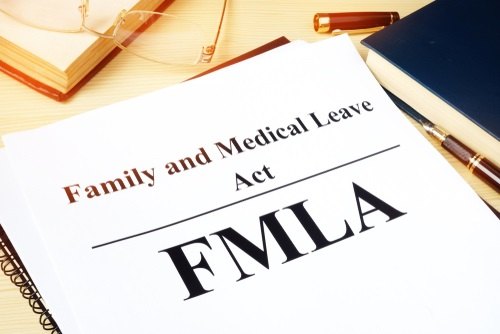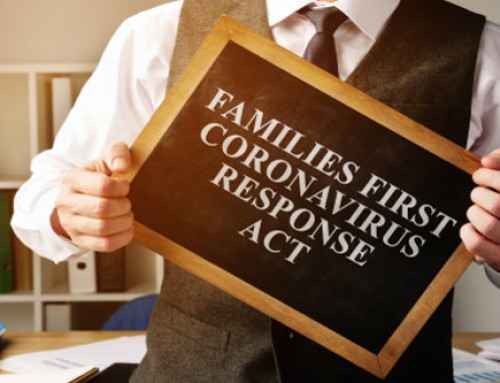The Family Medical Leave Act (FMLA) is a federal statute that entitles employees to take unpaid leave for certain family and medical reasons. The FMLA affords employees the opportunity to take “job-protected” leave, which means that they cannot be fired (or otherwise disciplined) as a result of their decision to take leave, and they are entitled to return to their same job or an “equivalent job” when their period of leave ends.
For employers in South Carolina that are subject to the FMLA, compliance is extremely important. It can also be quite challenging, as there are a number of areas where the FMLA does not provide complete guidance with respect to employees’ rights and employers’ obligations. This article provides an introduction to what employers in the Carolinas need to know. If you have questions about your company’s obligations, we encourage you to speak with one of our attorneys.
Which South Carolina Employers are Covered By the FMLA?
The FMLA applies to “covered employers.” In the private sector, covered employers are companies that have 50 or more employees for at least 20 workweeks in the current or preceding calendar year. If your company consistently has 50 or more employees on its payroll, your company is a covered employer. If you own a small business with less than 50 employees, it isn’t (although there are various other laws of which you may still need to be aware). If your staff fluctuates around 50 employees, then you will need to carefully monitor whether your employees are entitled to the protections of the FMLA.
When Can Employees Take FMLA Leave?
Under the FMLA, there are six primary circumstances in which employees of covered employers are eligible to take unpaid, job-protected leave. These are:
- To care for a newborn child within one year of birth
- To care for an adopted child or a child placed in foster care within one year of adoption or placement
- To care for a spouse, child, or parent who has been diagnosed with a serious health condition
- If the employee has been diagnosed with a serious health condition that prevents him or her from performing essential job functions
- If a qualifying exigency arises out of the employee’s spouse, child, or parent going on covered active duty in military service
- To care for a spouse, child, parent, or next of kin who is a covered service member and who has been diagnosed with a serious injury or illness (known as “military caregiver leave”)
The FMLA entitles eligible employees to take up to 12 weeks of unpaid, job-protected leave in a 12-month period, with an exception for military caregiver leave. Eligible employees who take military caregiver leave can take up to 26 weeks of protected leave in a 12-month period.
In addition to having a qualifying reason to take leave under the FMLA, employees must meet certain other eligibility requirements as well:
- The employee must have worked a minimum of 1,250 hours during the 12 months preceding the start of FMLA leave;
- The employee must work at a location where the employer has 50 or more employees within 75 miles; and,
- The employee must have worked for the employer for a minimum of 12 months within the past seven years (with exceptions for military service members and employees covered by collective bargaining agreements).
What Constitutes a “Serious Health Condition”?
One of the biggest questions for employers (and employees) under the FMLA is what constitutes a “serious health condition.” As summarized by the U.S. Department of Labor (DOL), the health conditions that qualify for FMLA leave include:
- Health conditions that require at least one overnight stay in a hospital or other medical facility
- Health conditions that result in incapacitation for more than three consecutive days and that require ongoing medical treatment
- Chronic health conditions that cause periods of incapacitation and that require treatment at least twice per year
- Pregnancy
As you can see, while this provides some guidance, it also leaves many questions unanswered. Additionally, employers must be careful to avoid asking the wrong questions and potentially exposing themselves to liability under the Americans with Disabilities Act (ADA). Employers have the right to request and evaluate medical certifications in order to validate FMLA leave requests (and they should do so in order to mitigate against fraudulent requests for leave); however, beyond this, employers must exercise caution prior to inquiring about the specifics of an employee’s or family member’s health condition.
Importantly, with regard to evaluating medical certifications for FMLA leave requests, there are a number of regulations that restrict what employers can do. For example, employees must be given a minimum of 15 days to obtain a medical certification. If an employer determines that a certification is deficient, it must communicate the specific deficiencies in writing, and the employee must be given a minimum of seven additional days to cure the deficiency. Additionally, the Health Insurance Portability and Accountability Act (HIPAA) privacy protections apply, and there are special rules regarding employers’ efforts to validate FMLA certifications (i.e. the employee’s direct supervisor may not contact the employee’s health provider).
What Constitutes an “Equivalent Job”?
When an employee returns to work from FMLA leave, he or she must be either (i) reinstated in his or her previous job, or (ii) offered an “equivalent job.” An equivalent job must be “nearly identical” to the employee’s previous employment. Among other things, this means that the job must:
- Have the same general work schedule
- Not require a significant increase in the employee’s commute
- Require the same general level of skill and effort
- Entail the same level of responsibility and authority
- Provide identical pay and benefits
Learn More about Your Company’s Obligations Under the FMLA
There are many more complex aspects to FMLA compliance for employers. If you have questions about FMLA compliance, we encourage you to get in touch. To speak with our employment lawyers at our offices in Columbia, South Carolina, please call 803-799-9311 or inquire online today.






